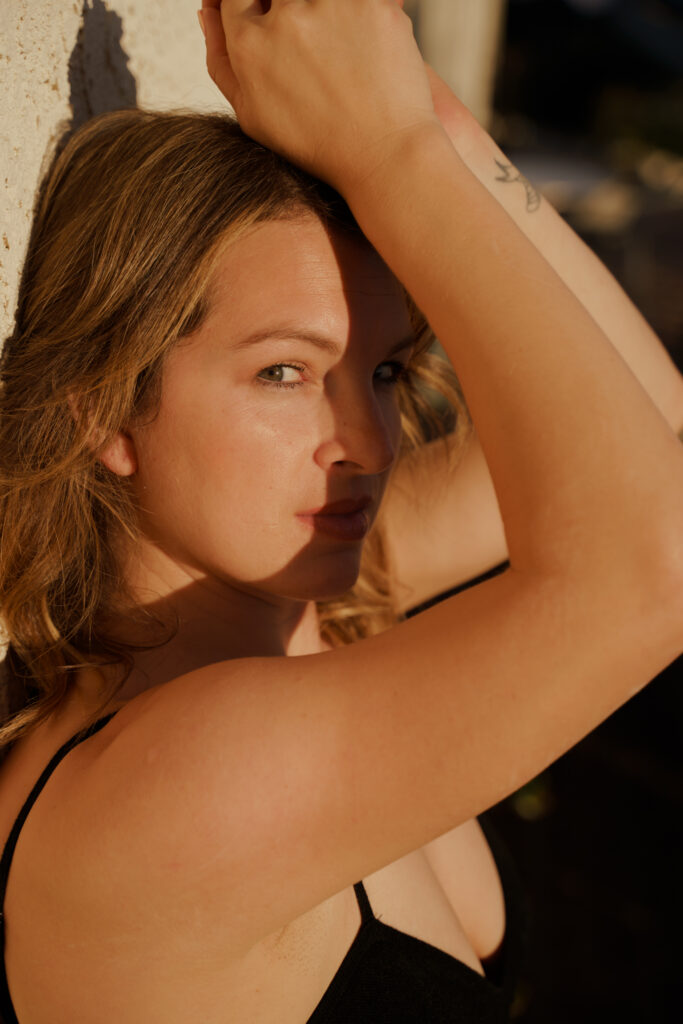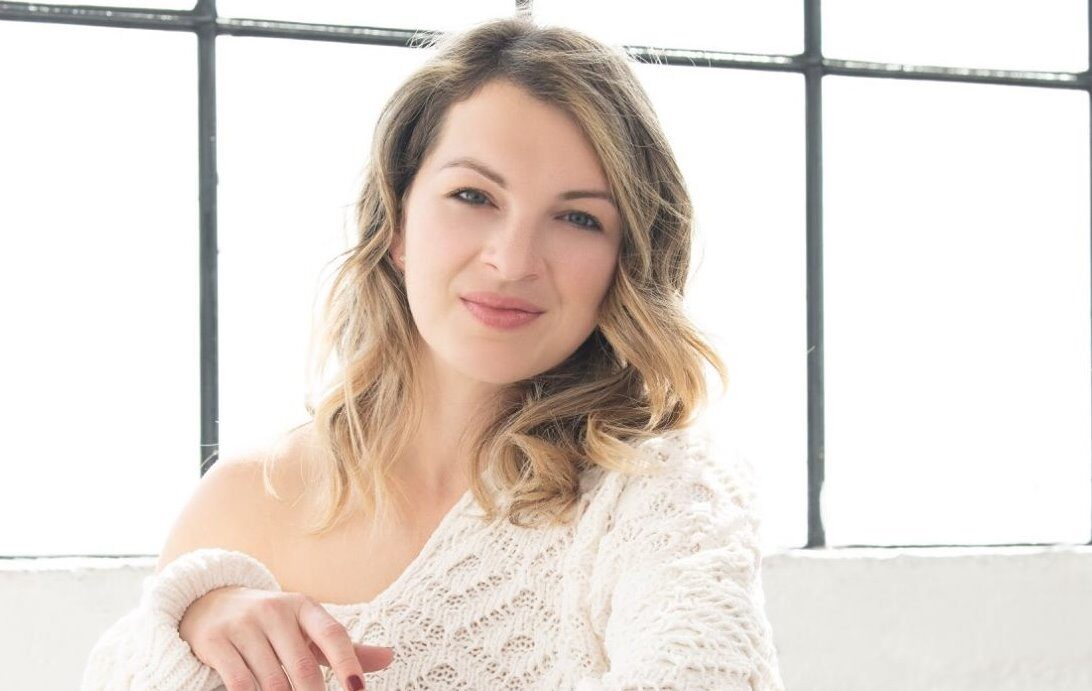In the face of unimaginable pain, there is a light that guides us toward healing and transformation. For the author of Into the Light, that journey began in a bookstore in Brooklyn, where the words of Rupi Kaur ignited a spark within her—a spark that would lead her to channel her own trauma into poetry. This interview explores the courageous path she took, turning her personal history of sexual trauma into a powerful collection of poems that not only serve as a means of healing for herself but also as a beacon of hope for others. Through her writing, she reminds us that even in our darkest moments, we possess the strength to create something beautiful, to find our voice, and to inspire others on their own healing journeys.
What inspired you to write Into the Light, and how did your personal history of sexual trauma shape the content of your poetry book?
Inspiration for Into the Light came from the author and poet Rupi Kaur. I was exploring Brooklyn one evening with a friend when we walked into a bookstore. Her book, Milk & Honey was on display. I picked it up and turned to a poem about her sexual assault experience. It was the first time I felt like someone understood my internal world. It was her poetry and voice that inspired me to use poetry to write about my sexual trauma. I wanted to channel it creatively and writing has always been an outlet for me since I was a child.
Can you share your journey of healing from trauma and how it influenced your writing process?
So often trauma survivors can’t find the words to verbalize or articulate what happened to them. Writing is a safe space for us to put into words what we sometimes can not speak out loud. I am in the process of writing a memoir about my story of healing from trauma and it has taken my years because it is so much more indepth than writing a book of poetry. I want to reach other survivors who like me need a voice, a source of inspiration and reminder to know we aren’t alone and we are capable of so much more than what happened to us.
What were some of the significant challenges you faced while writing and publishing your poetry book?
I definitely dealt with quite a bit of imposter syndrome and comparing myself to other authors out there. Luckily I had an amazing editor who was also wonderful at cheerleading me through the process. We all need a mentor especially when it comes to writing. It is too easy to get swept up by the inner critic’s voice.
How did you approach writing about such personal and sensitive topics, and what strategies did you use to stay emotionally balanced?
I remember my writing is not just for me but for other survivors. I find comfort in knowing someone’s life may be impacted in a positive way. I usually walk, meditate, or call a friend after I do a sprint of writing. It helps me to stay grounded and emotionally centered.

Have you encountered any struggles or obstacles in your creative process or in the reception of your work? How did you overcome them?
Obstacles I am constantly overcoming is facing the inner critic and writing anyway. I hold myself accountable by telling my friends and close circle what I’m dealing with in my writing process so that they can also encourage me. It really does help to have a supportive team of people behind you.
What role has mental health played in your journey as a writer? Have you faced any mental health challenges, and if so, how have you managed them?
I have struggled with depression and PTSD since my childhood. It has affected my confidence at times and I can lean into isolation and choose to not write because I don’t see a purpose in it. I combat it by telling my inner circle if I am starting to experience a spiral of negative thoughts or am experiencing a PTSD trigger. I also went to extensive trauma therapy and have been seeing a therapist on and off for the last six years.
Can you talk about a particular poem or aspect of Into the Light that holds special meaning for you and why? Yes, one of my shorter poems.
“Your light and your dark are both beautiful” – I really love this poem because it speaks to how our darkness still holds so much beauty. We so often carry shame and embarrassment around the dark parts of us, our past and flaws but I think its important to remember we are a whole person and without our darkness we wouldn’t be whole.
What advice would you give to women who are using creative writing to process their own trauma or address personal experiences?
Take your time, be patient with your process and reach out for help. Join a writing community, women’s circle, and create connections. It is extremely valuable when writing about trauma and sharing personal stories.
How do you balance your creative work with other aspects of your life and self-care?
I like to carve time out and make it ritualistic. I dedicate time to my creative process and mentally prepare myself so if I plan to write on a Friday night, I start setting self boundaries meaning saying no to invitations out, turning my phone off when it’s time to write, putting on music that supports my writing process, and staying committed to the window of time I set aside for my work.
What strategies or practices do you use to stay motivated and inspired as a writer?
For a while I was part of a writing group and had an amazing writing mentor. Her name is Suzanne Kingsbury and she is the founder of the Gateless Academy. It was her group that helped me stay motivated and accountable. I also read to stay motivated and am currently reading Bird by Bird by Anne Lamott and revisiting some of Rupi Kaur’s work actually.
How has your book impacted others who have engaged with your work? Have you received feedback that particularly resonated with you?
I wasn’t sure how people would respond to this book. It’s new and different for me. I have received emails of survivors thanking me for writing this and the Amazon reviews have been incredibly positive. The ones that resonate the most are from sexual trauma survivors who feel connected to the poems.
What are some misconceptions about writing poetry on personal trauma or sensitive topics that you’ve encountered, and how do you address them?
Misconceptions may be that no one will read the work or the common question of “What’s the point?”. I can only say if you can remember reading someone’s work that impacted you in a positive way, imagine someone reading your work and feeling that way.
How do you envision the future of your writing and your engagement with themes of healing and personal growth? What goals do you have for your future work?
The future of my writing is taking on many forms. I am currently working on an in-depth memoir of my process of healing from trauma. I also just finished my master’s in psychology, specializing in trauma so I see myself writing some psychoeducation/how-to books on healing from trauma.
What have you learned about yourself through your writing and the process of healing?
It can definitely be an emotional process and can bring up grief. Healing is not a straight line and writing can be a tool to help connect to the pain, reflect on the past and write a story of resilience.
What message or piece of advice would you like to leave with other women who are striving to share their personal stories through their creative endeavors?
Be gentle with yourself and know you are not alone. Your story can change someone’s life, inspire them in their healing and find their voice. I believe in you.






